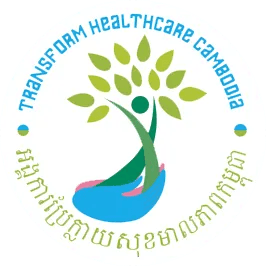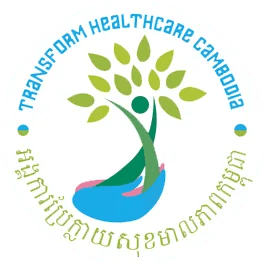A typical trip
There will be an experienced team leader who will have arranged several meetings in the UK beforehand briefing on what to expect and the usual format of things. There will have been plenty of communication between team leader and our Battambang senior colleagues. As the relationship between the charity and our Cambodian Colleagues has developed, the subjects areas for teaching are often requested by our Cambodian colleagues. It is important to try and put ideas of simply teaching what would be done in a UK hospital to our colleagues. Volunteers may need to assess and revise what they're doing when they see how the hospital and healthcare system works on the ground. The relationship is mutually respectful and should always be seen as such. We uses the resources we have in the UK; our Cambodian colleagues use the resources they have.
It's vital to remember you are representing the charity, not your own organisation, while on this trip. You are following in the footsteps of volunteers who have already been to Cambodia and you leave a legacy for any volunteers who go in future. As a charity, and in response to some poor behaviour overseas seen in other charitable organisations, Transform Healthcare Cambodia has a code of conduct. This must be followed at all times.
Approximate areas of teaching will have been indicated and rough outlines of presentations to teach with will have been generated by the volunteers who usually work in pairs. Powerpoint is the go-to tool. Some presentations will have already been done, so talk to the trip leader to check before generating any new material. Is this a new subject or is your talk an update? Any material must carry Transform Healthcare Cambodia's logo and a template ppt slide is available.
Usually volunteers travel independently (at their own expense) via Siem Reap (famous for the historic Angkor Wat temple complex) and we meet two days before the work week. Alternative routing is via Phnom Penh.
Often volunteers tag holiday days on before or after a trip; we would suggest after because a period of rest and readjustment may be needed before returning to the UK. There's plenty to explore and Khmer people are welcoming and friendly.
Respect and a certain amount of formality is important in Cambodia. We advise that volunteers learn some basic Khmer such as a respectful version of hello and goodbye and please and thank you.
We usually travel together to Battambang and try to arrange to stay together in a comfortable hotel (with a swimming pool etc). The food is excellent and safe to eat. In the evening we have debriefings and socialise!
It can take some adjusting to this different medical system and this can be unsettling but the trip leader and team are there to support you.
A typical day would be orientation, working with clinical colleagues and observation in the morning with the relevant discipline followed by small to medium size teaching session in the afternoon. This is usually done in pairs of teachers with a translator. A translator is actually easier that it might seem as it gives one time to think! We are usually at the hospital for 5 working days.
The full journey to and from Battambang takes best part of 2 days (with rest and connections etc)
Most of the work is at the central hospital but we have also made inroads to some peripheral units that are more like a UK GP practice with attached cottage hospital.
One of the trips (usually in July) is set up to facilitate pre registration nursing students to experience the Cambodian healthcare system. For more information go to ............................................
Generally volunteers come away with a feeling of having been in a mutual learning situation and discover a new appreciation for the NHS and UK healthcare system. Volunteers often describe their trip as life changing.
We have plenty of useful guidance; see the resources page.

